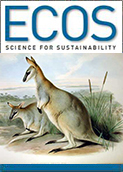
|
Published: 16 June 2014
Report shows need to reinvigorate corporate social responsibility
Australian and New Zealand organisations are falling behind when it comes to the implementation of corporate social responsibility (CSR), according to a new report.

|
|
A lack of leadership and an unsympathetic policy environment are blamed for the lack of corporate social responsibility in Australia and New Zealand. Credit:
Thinkstock
|
The State of Corporate Social Responsibility in Australia and New Zealand Annual Review is published annually by the Australian Centre for Corporate Social Responsibility (ACCSR). The Centre claims it is the largest ongoing study of CSR capabilities and practices in Australia.
The review analyses the level of CSR that organisations across all sectors demonstrate when implementing their policy and practices.
A record 990 respondents, spanning all business, industry, community and government sectors, filled in the survey, which this year was run in conjunction with Deakin University and Wright Communications in Auckland.
While reflecting on the progress in CSR over the past decade, respondents showed frustration at the slow pace of organisational and systemic implementation.
ACCSR Managing Director, Dr Leeora Black, said many survey respondents attribute the slow progress to an unsympathetic public policy environment and lack of leadership.
‘Respondents to the survey are calling for more leadership from business, government and the academic sector. They hope that CSR will have more government support and believe that mainstreaming would be assisted by more mandatory CSR actions.’
Dr Black believes that future progress in CSR will be closely tied to innovation in the arenas of supply chain, environment, reporting and collaboration with stakeholders.
She also believes that going forward organisations simply need to do more on a systemic, rather than just organisational basis.
‘Only in this way can we address deep-rooted social, economic and environmental problems to create lasting value for both organisations and their stakeholders.’
Deakin University Centre for Sustainable and Responsible Organisations Deputy Director, Dr Colin Higgins, agrees that innovative thinking and strong leadership is required and that the report is a wake-up call for education, business and government.
‘In previous years review has identified securing organisational buy-in as the greatest obstacle for progress in this area and this year‘s question about the development of CSR points to the same challenge.’
Despite a general lack of integrated CSR practice, the survey did highlight examples of good CSR leadership within Australian organisations and produced a CSR Top 10 list.
The 2014 CSR Top 10 organisations are: ABC, ARUP, GHD, Melbourne Water, National Australia Bank, Newmont Mining Corporation, PwC Australia, Rio Tinto, The University of Queensland and Main Roads Western Australia.
Source: ACCSR



